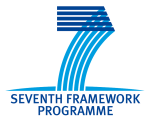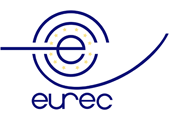menu
- Home
- National Information
- EC-Activities
- EUREC-Activities
- Legislation
- Training Materials
- Literature
- Events
- Newsletter
supported by:

Eurecnet - Training material details
Training material details
A casebook of medical ethics
Author(s): Ackerman, Terrence F.; Strong, Carson
Document type: Book
Year: 1989
Pages: 264
Source: Publishing house: Oxford University Press
Language(s): English
Classification
National background: United StatesCategory: Non-EU Training Material for Research Ethics
Subject areas: Human experimentation
Focus: Sub-focus: medical ethics; Indicate area of research dealt with: biomedical research involving human subjects
Content: Case studies; Legal background
Issues touched: Autonomy, respect, informed consent, subjects unable to consent, role of representatives Beneficence, non-maleficence, risk for the subject Justice, benefits/burdens, research without benefit for the subject, placebos/standard therapy; Protection of privacy, data protection, biological material Vulnerable groups, soldiers, prisoners, pregnant women, elderly people; Social impact of research, economic benefits, risks for third parties Social background of research, conflicts of interest, researcher vs. doctor, commercialisation; Ethics committees, research protocols
Audience: Students of natural sciences
Classification remarks: Includes 10 very detailed cases dealing with ethical problems of biomedical research involving human subjects, general comments (13 pages) and a list of references.
Estimation
Theoretical quality remarks: In the commentary part the authors give an overview of key problems of biomedical research involving human subjects. They offer a "balancing approach" close to the principles approach of the Belmont Report and compare it to a "social benefit view" and a "subject-oriented view".Didactical quality: Didactically prepared material
Didactical quality remarks: 10 very detailed cases, comments
Overall estimation: worth considering
Estimation remarks: The detailed cases might be useful as material for a course on research ethics, the discussion of three different approaches to research ethics could also be helpful to demonstrate important questions although the "balancing strategy" favoured by the authors is not always convincing.
